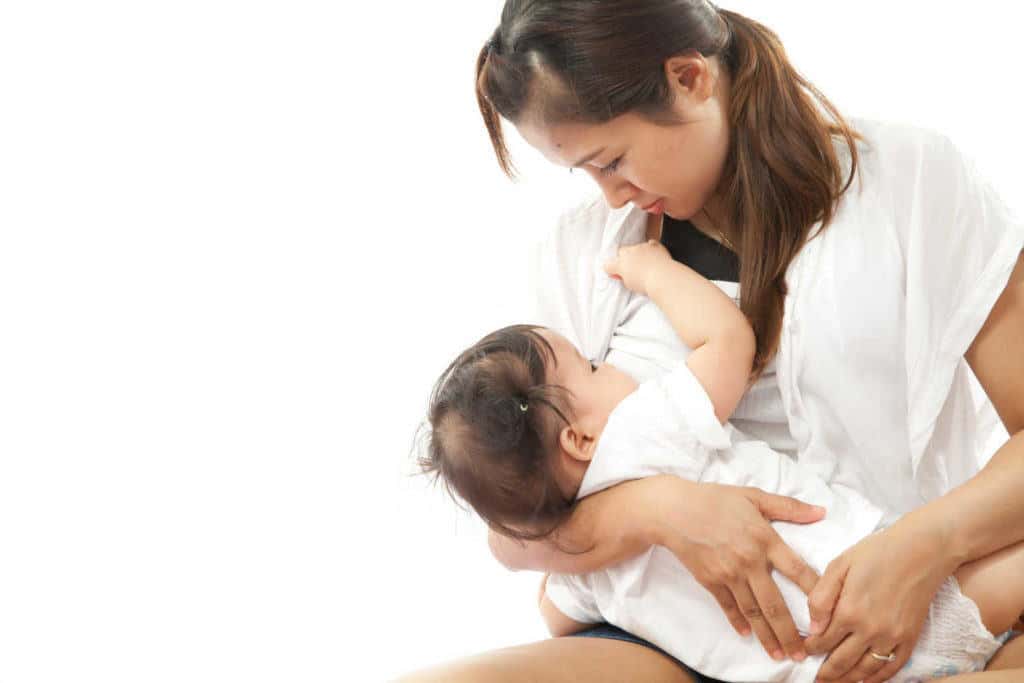Contents:
- Medical Video: Pregnancy Tips : Signs of Pregnancy While Breastfeeding
- In order to get pregnant again even though still breastfeeding
Medical Video: Pregnancy Tips : Signs of Pregnancy While Breastfeeding
The fact is that being pregnant again while still breastfeeding is very difficult to occur. Breastfeeding is very effective at preventing pregnancy, around 98% - 99%, although it cannot be said that pregnancy when breastfeeding cannot occur. Fertility rates for breastfeeding mothers are indeed low, but that does not mean nursing mothers cannot get pregnant at all. If the mother feeds her baby at night, it takes about a year or more to be able to return to the ovulation cycle as before. However, if breastfeeding is interspersed with formula milk or the baby is not breastfed at night (it could be because they don't sleep together), the menstrual cycle can return to normal within 3-5 months.
Breastfeeding activities stop the hormones that stimulate ovulation. The longer you breastfeed, the more difficult it is for you to get a pregnancy during the breastfeeding period. You may ovulate 3 months after you start breastfeeding, but because your menstrual period doesn't come before 2 weeks after ovulation, you won't know it before it's too late!
In order to get pregnant again even though still breastfeeding
Even if you don't menstruate after a few months after giving birth, your body will usually release the first egg after giving birth, before the arrival of the first menstruation. You will not know it before 2 weeks later when you have menstruation. The best possibility to get a pregnancy while breastfeeding is to make sexual contact regularly without protection.
The process of breastfeeding stimulates the hormone prolactin, also called "milk hormone", which when in a high level will stop the ovulation process.
If your baby starts to fall asleep all night, your prolactin levels will decrease and chances are that in 3-8 months you will have a fertile period - this can also happen if you intersect the breastfeeding activity by giving formula milk or ASI through bottles.
If you give exclusive milk to your baby day and night, prolactin levels in the body will increase. This high hormone level will decrease naturally over time. However, you will not experience menstruation for a period of one year after giving birth.
Some women control their pregnancy by breastfeeding; this is called lactational amernorrhoea method or LAM. This is quite risky, considering the first ovulation is difficult to know when the time. If you are interested in trying, contact a doctor who handles problems related to breastfeeding activities at the nearest hospital or child care center.
If you decide not to get pregnant during breastfeeding, it's best to start using contraception when you start having sex again.
Women who want to get a pregnancy can still breastfeed as usual. Consider some of the things that need to be considered below so that the body is ready to welcome the presence of the fetus and increase the chances of pregnancy.
(Important note: if your baby is under 9 months old, your priority is to breastfeed, not to get pregnant again, because the baby really needs nutrition and an inner bond with his mother, which can be obtained from breastfeeding.)
- Reduce breastfeeding at night (at least 6 hours) so that milk supply can be reduced. With this, your body will catch a message to continue with other bodily functions like ordinary days that are not related to breastfeeding, such as ovulation.
- Start giving your baby solid food and other supporting fluids at the age of 6 months. This further helps reduce milk supply. Your baby still gets the nutrients needed and you can still get the benefits of an inner bond with the baby during breastfeeding during the day.
- Greet your baby directly or not gradually. If the nipples that continue to get stimulation prevent your body from ovulating, then weaning the baby is the last option so that the pregnancy during breastfeeding can succeed. But this is not recommended if your baby is less than 6 months old. No need to deny that weaning babies should really be the last resort and this is not recommended because breastfeeding is very important for the health and development of your baby. WHO recommends exclusive breastfeeding for infants up to 6 months of age and supplementary feeding in addition to breastfeeding until the age of 2 years.












